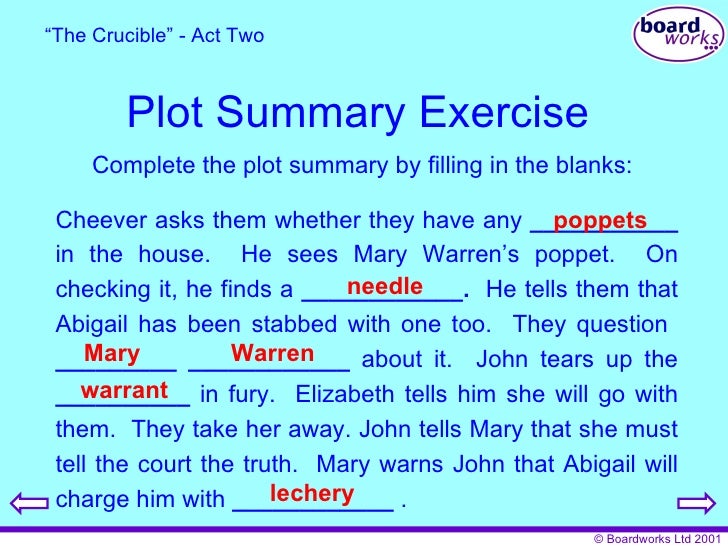
However, in the play, Reverend Parris threatens to beat Tituba to death, but in the movie, he does whip her until she admits to engaging in witchcraft.Ĭompared to her portrayal in the play, Abigail’s final element in the film is different since she is revealed to have made false allegations of witchcraft against other people out of her love for John Proctor (Belounis, 2021). Tituba is again accused of practicing witchcraft in another scene. In the movie, when Reverend Parris asks Abigail whether her reputation in town is good, he slaps her in the play, he never touches her.

This scene does not occur in the play because Betty does not move and acts as if she is sick therefore, she never cries or yells at any point throughout the performance (Foulis, 2014). To begin, during one of the scenes, Betty is heard calling for her mother and begins to scream once she does not get a response. Although it was handled reasonably differently in the play, the movie adaptation handles it differently. A moment early on in the movie takes place in the woods. The increased sense of drama generated by the event’s filming may be attributed, in part, to the use of music and the detailed direction used while shooting the individual segments. I believe this is the case (Foulis, 2014). My understanding is that the play was adapted into a movie to provide an interesting perspective on the events that were occurring and make it easy to grasp what was happening in each of the play’s scenes. As a result of the adaptation process, there are a few critical variations between the film and the stage adaptation.

The play and the movie are pretty different in many fundamental ways, the most noticeable of which are the setting, the story, and the characters.


 0 kommentar(er)
0 kommentar(er)
